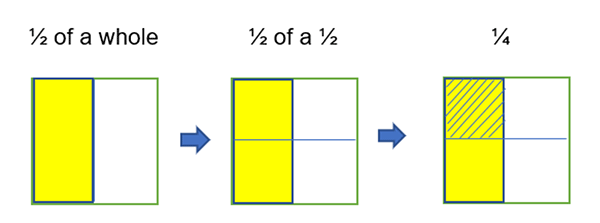
As a Math teacher with over 13 years of teaching experience in 3 different primary schools, I have taught over 400 upper primary pupils of a wide spectrum of abilities in this subject.
Over the years, I have seen so many pupils struggling to cope with Math. No matter how much time they had put in learning this subject in school, at home with private tutors or in tuition centres, some pupils just could not seem to do well for it.
Many of these pupils were already not doing well or had average results for Math when they were in lower primary levels.
Their problems in handling this subject compounded as they progressed to higher level each year.
Not only did they lose interest and the motivation to learn this subject, their parents also felt frustrated, not knowing what else they could do to help their children.
There is no quick fix to helping a pupil do well for PSLE Math. Till this day, I still believe that practising Math questions on a regular basis and having a good foundation of concepts learnt at each primary level are the crux of doing well for this subject.
Just as problems can compound and get worse, understanding of concepts will build on and result in improved grades.
In this article, I will share with you some "Dos" and "Don’ts" when it comes to learning Math.
-
Practise with understanding. Comprehend fundamental concepts learnt. Do not drill repeatedly without understanding or just memorise steps.
For example, what is ×?
Many of us can just solve this mechanical question without understanding the concept and get . It is abstract.
We can actually use pictorial aids as shown below to explain the working.

Use the CPA approach (Concrete → Pictorial → Abstract) to learn concepts as far as possible. For the concrete (real examples, manipulatives) stage, we can cut a cake to explain the concept above.
-
Learn different methods. Do not keep to just one method.
There are different ways to solve the same problem sum. Certain method can be more effective in solving different types of questions. Some pupils only use the algebraic approach to solve all problem sums.
-
Practise Math questions regularly. Do not start revising when exam nears only.
The more your brain "exercises", the better and faster it becomes. It is just like building up stamina when it comes to running. I remember that when I was a primary school pupil, I revised my work daily after lessons so as to clear all my doubts. Never let your doubts compound as a small problem will snowball to a big one!
-
Practise similar type of questions that can be solved using certain strategy/strategies. Do not just do topical revision.
Repetition in doing similar types of questions with understanding trains you to identify the "pattern" and pick out clues more easily. Thus, you can narrow down on the right strategy to apply in the problem sum quickly.
OwlSmart is a great tool for this with a rich database of different types of questions that are systematically categorised into topics, levels of difficulty and strategies.
-
Persevere and do not give up easily

Keep on trying and not giving up! You deserve praise and encouragement when you make small improvements. You might not get A*, but I believe you will get better after each failure as long as you do not give up.
-
Focus on the thinking process and not just to get the answer
The step-by-step working is important. Understand how you get from one step to another step.
-
Do mental calculation frequently. Do not rely on calculators too much.
As long as the numbers involved are not too big, try as much as possible to calculate the operations of numbers mentally. This will train you to think faster with accuracy.
-
Adopt a step-by-step approach in solving a problem sum. Do not rush into solving a problem sum.
The STAR approach is recommended. Refer to the Math article published on 21 June for greater details. Read, understand and think before acting! The thinking stage involves picking out contextual clues to narrow down on the strategy to use.
-
Set targets for yourself. Do not just accept the present situation as it is.
Push yourself to a higher level. Do not stay in your comfort zone and just accept the situation (not passing or scoring well for Math) as it is. The likelihood is your Math results will spiral further down if no remedial actions are taken to correct your misconceptions or lack of understanding of concepts.
Conclusion
Success in Math does not come overnight. Adopt the right learning habits as stated above and make sure you really understand the mathematical concepts taught. Whenever possible, clear your doubts.
About the Author
Teacher Zen has over a decade of experience in teaching upper primary Math and Science in local schools. He has a post-graduate diploma in education from NIE and has a wealth of experience in marking PSLE Science and Math papers. When not teaching or working on OwlSmart, he enjoys watching soccer and supports Liverpool football team.



